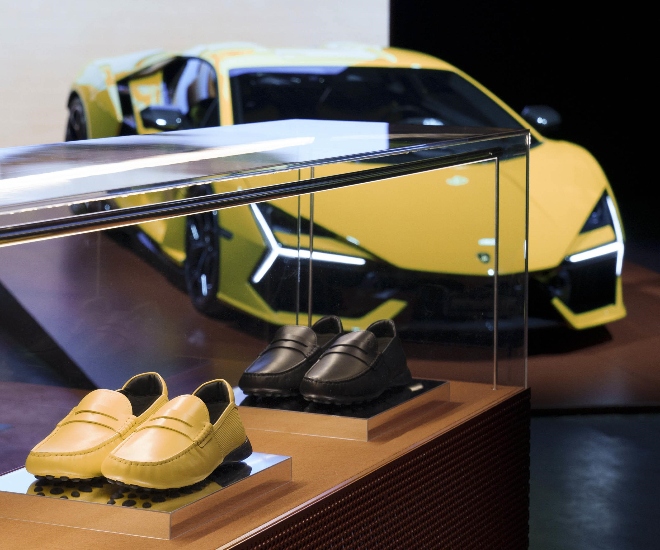It is undeniable that successful automotive brands, like Mercedes-Benz, Lexus, BMW, and Porsche, have built their reputations on product excellence and innovation. Mercedes, for instance, is known for advanced engineering and luxury, Lexus for dependability, and BMW and Porsche for performance.

Owing to their consistent positioning and top-notch execution, these brands have become industry stalwarts with millions of admirers across the world. However, the luxury market is a competitive place, and leading brands need to keep evolving as consumer behavior changes. Accordingly, many experts believe that carmakers today must transition from being “mobility providers” to “lifestyle providers,” as it would enable them to engage with their customers in a more meaningful way.

Not just that, lifestyle marketing complements the rise of experiential luxury, a trend that no high-end marque can afford to overlook. According to a Lexus-commissioned study on the “Future of Luxury,” 56 percent of the respondents saw luxury as a lifestyle of experiences rather than a collection of items, and 86 percent expected luxury brands to provide great experiences to customers. “Looking to the future, successful luxury brands will differentiate themselves with quality experiences and service, not just quality products,” the Japanese firm concluded.

Lexus, of course, has undertaken numerous initiatives to capture a share of the experience economy. Take the case of the Lexus Performance Driving School, which invites enthusiasts to drive the company’s high-performance vehicles at popular racetracks, such as the Circuit of the Americas and the Indianapolis Motor Speedway. Meanwhile, the Intersect by Lexus retail concept, with its culinary and social offerings, is for those who wish to connect with the label in a less auto-centric setting.
“We often talk about being a lifestyle brand and not a car brand,” said Mark Templin, former vice president of Lexus International, in an interview with Legacy Lab. “At Lexus, we don’t just want to be a part of our consumers’ lives for the 10 minutes or one hour they drive each day. We want to be a part of their lives 24 hours a day. So, how do we help their lives all the time?”
Bear in mind that Lexus’s contemporaries, especially the Europeans, provide comparable, if not more attractive, events and programs for their followers. They have also done an excellent job promoting their lifestyle products.

Indeed, all of us are aware of how Ferrari has grown its brand through apparel, accessories, and collectibles. In 2021, it even introduced its first in-house fashion collection under the leadership of former Armani designer Rocco Iannone. “Ferrari is at its core a luxury company and the most distinctive and innovative luxury brand, and we see huge opportunities lying ahead in further developing its lifestyle,” said John Elkann, the company’s chairman.

Ferrari’s rivals, including Aston Martin, Lamborghini, Porsche, and Bentley, also have their own lifestyle projects, ranging from clothes and furniture to real estate. Lamborghini unveiled its first shoe collection with leather goods manufacturer TOD’s earlier this year, while Aston Martin just celebrated the completion of its 66-storey skyscraper in Miami.
If that wasn’t enough, newcomers to the auto industry are also looking at lifestyle products for value generation. NIO, a Chinese upstart that competes with Tesla, has collaborated with over 600 designers on everyday items and won numerous accolades for its efforts. Among the highlights is the company’s sustainable fashion line (Blue Sky Lab), which uses materials recycled from NIO’s vehicle production waste.

“We feel that capability building within NIO Life should not be seen as being in conflict with our main automotive business,” Lihong Qin, NIO’s co-founder, told McKinsey & Co. “Today, the penetration rate of NIO Life has exceeded 50 percent among NIO users, and will rise further as capabilities in multiple areas are put in place. With the scale-up of vehicle delivery, the investment here is not putting additional pressure on us, but will instead become a new source of value growth.”
Admittedly, NIO has yet to attain financial stability (it lost USD 2.9 billion in 2023), so it’s too early to say if its plan would work. Auto manufacturing demands a lot of focus, and even the incumbents haven’t always been successful with their brand expansions. Ferrari had to reduce its license deals by half as some of them risked undermining the company’s brand image, while Lexus has already closed its Intersect outlets in New York and Dubai. However, their initiatives such as driving programs and motorsport merchandise have been effective in increasing consumer engagement and creating a sense of community around the brand.

At the end of the day, technological advancements, globalisation, and accessible technical know-how have made the manufacturing of cars easier, leaving little room for differentiation. So automakers aren’t exactly heading in the wrong direction with the expansion of lifestyle branding, as it could afford the much-needed means of preserving their brand identities and even fostering long-term consumer loyalties.
However, they should still be acutely aware of their limitations of being car manufacturers first and lifestyle brands second — especially in an environment of saturated lifestyle brands that could compound on the issue of a highly-homogenised car market. An overemphasis on lifestyle extension could potentially distract from the dire need to establish their own USPs.
For more on the latest automotive reads, click here.

